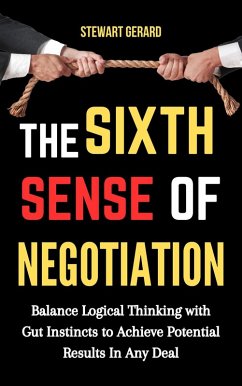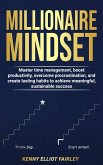This book explores the hidden dimension of negotiationthe intuitive edge that separates good negotiators from great ones. While logic forms the foundation of any strong deal, instinct is what turns uncertainty into advantage. Many professionals overestimate the power of preparation while underestimating the role of adaptability. A well-researched proposal is important, but success often depends on the ability to read signals, adjust strategies in real-time, and make split-second decisions that cannot be mapped out in advance.
One of the greatest mistakes in negotiation is ignoring the emotional undercurrents that influence decision-making. People rarely make choices based on numbers alone. Fear, trust, ambition, and ego all play a role, and skilled negotiators recognize when these factors are more important than the deal itself. A rigid approach can lead to missed opportunities, while a negotiator who trusts their instincts can identify hidden leverage points and create solutions that logic alone would not reveal.
Timing is another critical element. The same offer can be rejected in one moment and accepted in another, depending on subtle shifts in the conversation. Recognizing these shifts requires an awareness that cannot be taught in traditional business courses. The ability to sense when a counterpart is uncertain, hesitant, or looking for a way to say yes is what allows top negotiators to close deals that others would walk away from.
This book also challenges the common belief that negotiation is a battle of persuasion. Winning a deal does not always mean overpowering the other party's position. The best outcomes are often the result of alignment rather than confrontation. Negotiators who can balance logic with intuition recognize when a rigid stance is necessary and when flexibility will yield a better result. They understand that a negotiation is not just about making a caseit is about making the other party feel like they are making the right decision.
Negotiation is an evolving process, not a fixed set of tactics. The most effective dealmakers develop an instinct for when to apply pressure and when to create space. They recognize that silence can be more powerful than speaking, that asking the right question at the right time can shift an entire conversation, and that confidence is more persuasive than aggression.
This book provides insights into how experienced negotiators sharpen their instincts while maintaining a structured approach. It breaks down real-world examples of negotiations that were won not just by data and logic but by an ability to sense the moment and act decisively. It examines how subtle cuesbody language, tone, hesitationcan reveal what is not being said and how the best negotiators use this information to their advantage.
Every deal has a logical structure, but success is often determined by what cannot be measured. The best negotiators don't just follow a processthey sense the moment, adjust their approach, and secure results that others cannot.
Dieser Download kann aus rechtlichen Gründen nur mit Rechnungsadresse in A, B, CY, CZ, D, DK, EW, E, FIN, F, GR, H, IRL, I, LT, L, LR, M, NL, PL, P, R, S, SLO, SK ausgeliefert werden.









